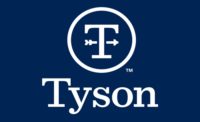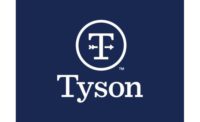Tyson Foods reported its first quarter results. Overall sales for the first quarter were $10.460 million, a slight decrease from 2020’s $10.815 in sales. Operating income was $705 million, a decrease from 2020’s $758 million.
“We delivered strong operating earnings performance, exceeding $1 billion in operating income for the quarter,” said Dean Banks, president and CEO of Tyson Foods. “This performance was driven by higher earnings in our Prepared Foods, Beef, and Chicken segments and demonstrates our effectiveness in addressing customer and consumer needs, while continuing to manage the ongoing effects of the global pandemic. I am exceptionally proud of our global team for their contributions to this strong result.”
“As we navigate continued market volatility, our multi-protein portfolio creates the fuel for disciplined investments in higher margin, higher growth opportunities ahead. We will continuously seek to remove unnecessary costs from the business and invest in the right areas. Looking forward, I’m confident that our team is executing on the right priorities to meet our commitments and drive shareholder value creation.”
“We’re optimistic about the continued success of Tyson Foods, and we are positioned for long-term, sustainable growth. We have an incredible opportunity through our leadership in sustainability and social responsibility to drive a more sustainable future for our company and our planet.”
The company also reported the following results:
“We incurred direct incremental expenses associated with the impact of COVID-19 totaling approximately $120 million for the first quarter of fiscal 2021. These direct incremental expenses primarily included team member costs associated with worker health and availability including direct costs for personal protection equipment, production facility sanitization, COVID-19 testing, donations, product downgrades, rendered product and certain professional fees, partially offset by CARES Act credits. Other indirect costs associated with COVID-19 are not reflected in this amount, including costs associated with raw materials, distribution and transportation, plant underutilization and reconfiguration, premiums paid to cattle producers and pricing discounts.
Summary of Segment Results
- Beef – “Sales volume increased primarily due to strong domestic and export demand as well as the prior year impact of a fire which caused the temporary closure of a production facility for the majority of the first quarter of fiscal 2020. Average sales price decreased primarily due to increased availability of market-ready live cattle. Operating income increased due to strong demand as we continued to optimize revenues relative to live cattle supply, partially offset by production inefficiencies and direct incremental expenses related to COVID-19. Additionally, operating income in the first quarter of fiscal 2021 was impacted by a cattle supplier's misappropriation of company funds, which resulted in a $55 million gain related to the recovery of cattle inventory as compared to a $68 million loss recognized in the first quarter of fiscal 2020.”
- Pork – “Sales volume decreased due to the temporary idling of a production facility for a portion of the quarter related to a mechanical malfunction, partially offset by strong demand. Average sales price increased due to strong demand. Operating income decreased primarily due to production inefficiencies and direct incremental expenses related to COVID-19 as well as periods of compressed pork margins as livestock costs increased faster than sales prices.”
- Chicken – “Sales volume decreased due to lower production throughput including impacts associated with COVID-19. Average sales price increased due to favorable sales mix and overall retail market conditions. Operating income decreased primarily due to a $320 million loss from the recognition of a legal contingency accrual as well as production inefficiencies and direct incremental expenses related to COVID-19. Additionally, operating income in the first quarter of fiscal 2021 was impacted by $70 million of incremental net derivative gains as compared to the first quarter of fiscal 2020.”
- Prepared Foods – “Sales volume decreased as growth in volume across the retail channel was offset by a reduction in the foodservice channel related to reduced demand as well as lower production throughput due to the impact of COVID-19. Average sales price increased in the first quarter due to favorable product mix and the pass through of increased raw material costs. Operating income increased due to lower commercial spend and favorable product mix partially offset by increased operating costs, including a $35 million increase in raw material costs, as well as production inefficiencies related to COVID-19.”
Source: Tyson Foods




Report Abusive Comment